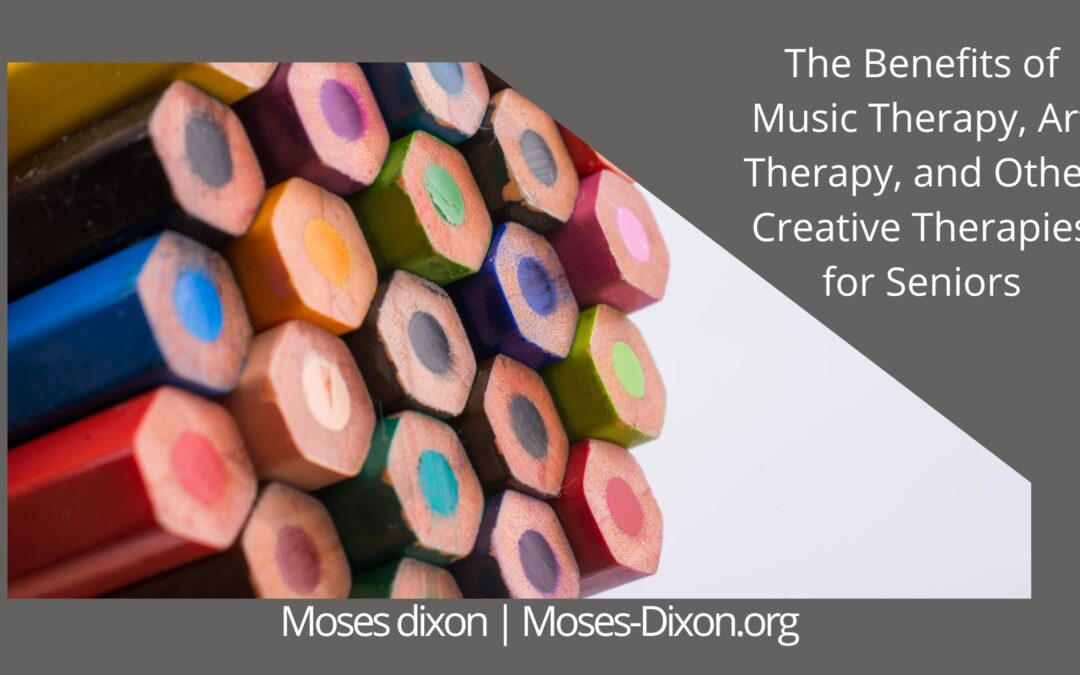As individuals age, maintaining their physical and mental well-being becomes increasingly important. Creative therapies, such as music therapy, art therapy, and other expressive arts, have emerged as effective and enjoyable approaches to support the health and well-being of seniors. These therapies harness the power of creative expression to improve cognitive function, enhance emotional well-being, and promote social engagement.
Music therapy is a well-established practice that utilizes music to address physical, emotional, cognitive, and social needs. For seniors, music therapy can be particularly beneficial in various ways. Firstly, it can stimulate memory recall and cognitive function. Listening to familiar songs or playing musical instruments can trigger memories, evoke emotions, and improve overall cognitive abilities. This can be especially beneficial for individuals living with Alzheimer’s disease or dementia, as music can serve as a powerful tool for reminiscence and connection.
Furthermore, music therapy can enhance emotional well-being and reduce stress and anxiety. Engaging with music can evoke positive emotions, provide comfort, and serve as an outlet for self-expression. Singing, playing instruments, or participating in group music activities can create a sense of joy, relaxation, and emotional release. It can also serve as a means of communication and connection, fostering social interaction and reducing feelings of loneliness or isolation.
Art therapy is another creative therapy that has shown significant benefits for seniors. Through various art modalities, such as painting, drawing, and sculpting, seniors can engage in a creative process that promotes self-expression and self-discovery. Art therapy can help seniors explore their thoughts, feelings, and memories, even when verbal communication becomes challenging. It provides a nonverbal outlet for emotional expression and can be particularly helpful for seniors dealing with grief, loss, or trauma. Moreover, art therapy can improve cognitive abilities and enhance sensory integration. Engaging in artistic activities can stimulate the brain, enhance problem-solving skills, and improve hand-eye coordination. It can also provide sensory stimulation and promote relaxation, which can be especially valuable for seniors with sensory impairments or age-related conditions.
In addition to music and art therapy, other creative therapies, such as dance/movement therapy, drama therapy, and poetry therapy, offer unique benefits for seniors. Dance/movement therapy combines movement and expression to promote physical, emotional, and cognitive well-being. It can improve mobility, balance, and coordination while providing an outlet for self-expression and creativity.
Drama therapy involves role-playing, storytelling, and improvisation to support emotional expression and social interaction. It can help seniors explore different perspectives, gain insight into their own experiences, and foster a sense of playfulness and spontaneity.
Poetry therapy engages seniors in the creation and exploration of poetry or other forms of written expression. It provides an outlet for self-reflection, emotional release, and creativity. Writing and sharing poetry can promote self-awareness, encourage storytelling, and strengthen cognitive abilities.
The benefits of these creative therapies extend beyond the individual level and can positively impact the overall well-being of seniors in various care settings. Participating in group sessions or engaging in creative activities with peers fosters social interaction, reduces feelings of isolation, and creates a sense of community. Creative therapies provide opportunities for shared experiences, collaboration, and support, allowing seniors to connect with others and build meaningful relationships.
Furthermore, creative therapies can enhance the quality of life for seniors by providing a sense of purpose and fulfillment. Engaging in creative activities fosters a sense of achievement, boosts self-esteem, and promotes a positive outlook on life. It encourages seniors to explore their talents, discover new interests, and continue learning and growing.
Creative therapies promote cognitive function, emotional well-being, and social engagement. These therapies provide avenues for self-expression, stimulate memories, reduce stress, and enhance quality of life. Incorporating creative therapies into senior care settings can contribute to a holistic approach to well-being, supporting seniors in living fulfilling, meaningful, and joyful lives.
